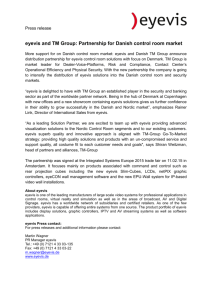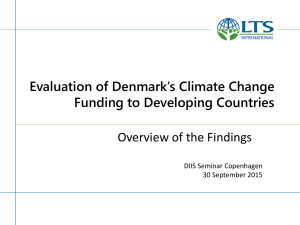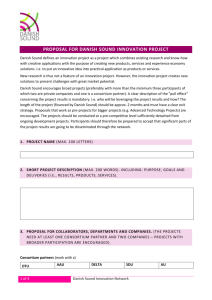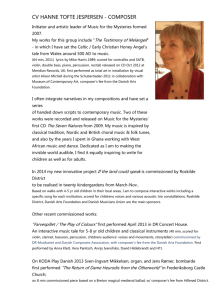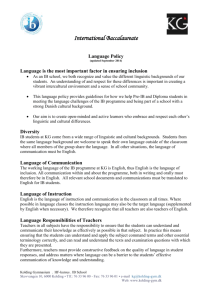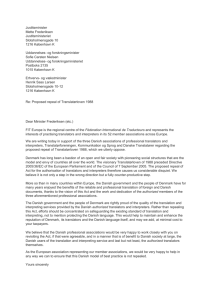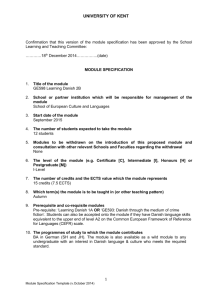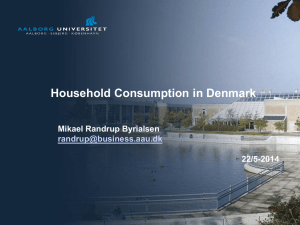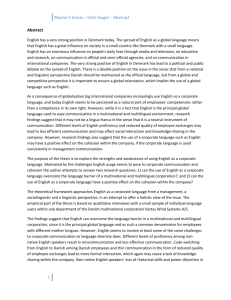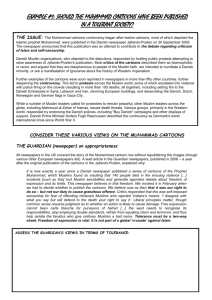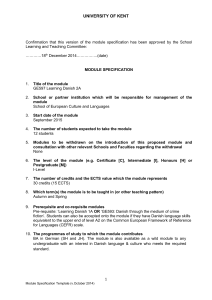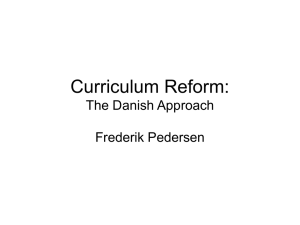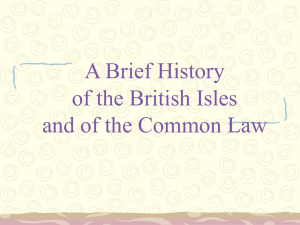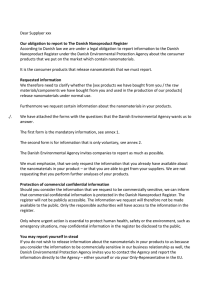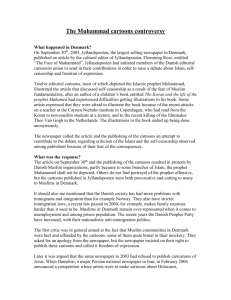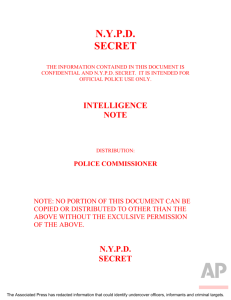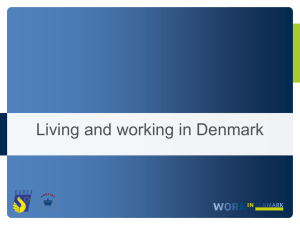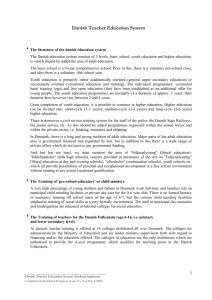Denmark
advertisement
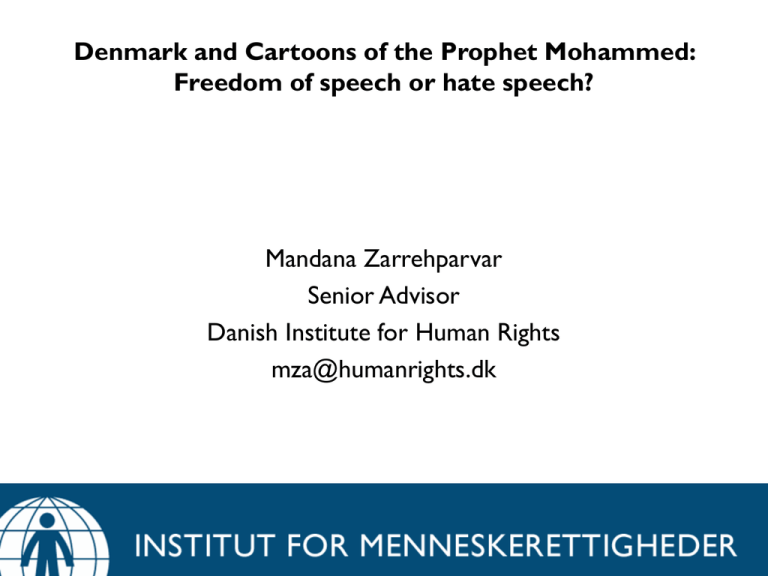
Denmark and Cartoons of the Prophet Mohammed: Freedom of speech or hate speech? Mandana Zarrehparvar Senior Advisor Danish Institute for Human Rights mza@humanrights.dk What is the story? A chronological overview (1) • 30 September 2005: 12 cartoons of the Muslims prophet published in Jyllands-Posten • 12 October 2005: Letter from 11 ambassadors from Muslim States to the Danish Prime Minister • 25 October 2005: Egyptian Ministry of Foreign Affairs call to the Danish Prime Minister to distance its self from the cartoons • December 2005: Delegation of Danish Muslims tour of the Middle East What is the story? A chronological overview (II) • January & February 2006: Boycott of Danish products, demonstrations in Muslim countries and attack on Danish embassies and consuls. • 16 March 2006: Pubic prosecutor denies to institute criminal proceedings against Jyllands-Posten • 17 March 2006: European Court of Justice receives three complaints • 18 March 2006: Report from UN Special rapporteur on contemporary forms of racism Why all the commotion? (I) Domestic politics and situation: • • • • Majority vis à vis minority issues Pubic debate Recognition Legislation Why all the commotion? (II) International politics and situation: • War on terrorism • Clash of civilizations? • Domestic politics From a Human Rights Point of view • • • • • Freedom of speech? Freedom of religion? Freedom from racism and hate speech? All of above? None of above? Universal Declaration of Human Rights Article 18: Everyone has the right to freedom of thought, conscience and religion; this right includes freedom to change his religion or belief, and freedom, either alone or in community with others and in public or private, to manifest his religion or belief in teaching, practice, worship and observance. Universal Declaration of Human Rights Article 19: Everyone has the right to freedom of opinion and expression; this right includes freedom to hold opinions without interference and to seek, receive and impart information and ideas through any media and regardless of frontiers. CCPR Article19 • 1. Everyone shall have the right to hold opinions without interference. • 2. Everyone shall have the right to freedom of expression; this right shall include freedom to seek, receive and impart information and ideas of all kinds, regardless of frontiers, either orally, in writing or in print, in the form of art, or through any other media of his choice. CCPR Article19 3. The exercise of the rights provided for in paragraph 2 of this article carries with it special duties and responsibilities. It may therefore be subject to certain restrictions, but these shall only be such as are provided by law and are necessary: (a) For respect of the rights or reputations of others; (b) For the protection of national security or of public order (ordre public), or of public health or morals. CCPR Article 20 2. Any advocacy of national, racial or religious hatred that constitutes incitement to discrimination, hostility or violence shall be prohibited by law. ICERD Article 4 (a) Shall declare an offence punishable by law all dissemination of ideas based on racial superiority or hatred, incitement to racial discrimination, as well as all acts of violence or incitement to such acts against any race or group of persons of another colour or ethnic origin, and also the provision of any assistance to racist activities, including the financing thereof; What Next? Some food for thought • 20 Million Muslims reside within EU at the moment – are they or are they not citizens? Formally? Substantially? • Are ethnic and religious minorities effectively protected against hate speech and discrimination? • Popular right wing parties are on a rise through democratic process and are a weight on the parliamentary scale – at the same time we are liquid societies – how do we deal with the dilemma?
